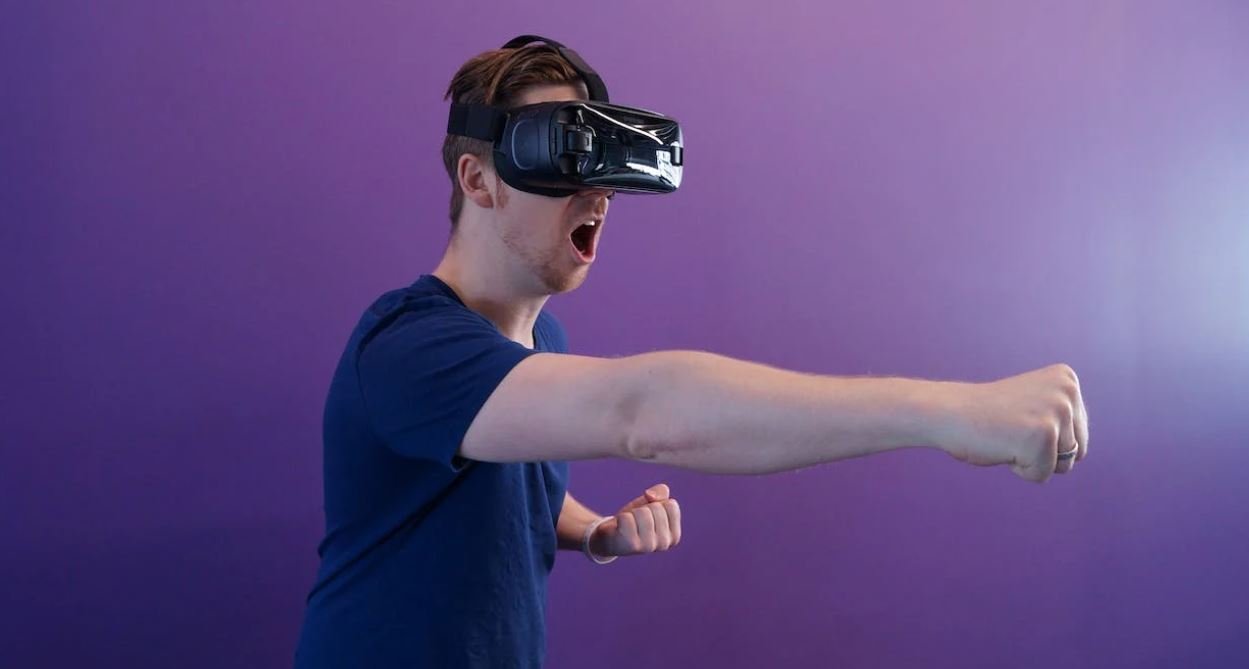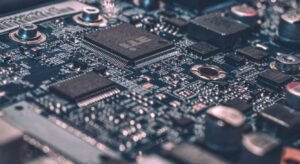AI Making Jobs Obsolete
Artificial Intelligence (AI) has become an integral part of our daily lives, revolutionizing industries and transforming the way we work. While AI offers numerous benefits, there is growing concern about its impact on employment. As AI technology advances, there is a fear that it will render many jobs obsolete. This article explores the implications of AI on the job market and discusses the key challenges and opportunities it presents.
Key Takeaways
- AI technology has the potential to replace certain job roles.
- Job displacement may lead to the need for reskilling and upskilling.
- AI can also create new job opportunities in emerging fields.
- Ethical considerations and regulation of AI in the workplace are crucial.
AI systems can perform tasks that were once exclusive to humans, ranging from simple repetitive tasks to complex decision-making processes. With advancements in machine learning algorithms and natural language processing, **AI is increasingly capable of emulating human intelligence**. This has raised concerns about the future of work and the potential mass displacement of jobs.
According to a recent study, **around 50% of all occupations have the potential to be automated**. Jobs that involve routine and repetitive tasks, such as data entry, assembly line work, and customer service, are at a higher risk of being replaced by AI systems. However, it’s important to note that AI often complements human labor rather than completely replacing it. **Human skills like creativity, emotional intelligence, and critical thinking are still highly valued** and are difficult to replicate in machines.
While AI may eliminate certain job roles, it also creates new opportunities in emerging fields. **Jobs requiring advanced AI skills, such as data science and AI engineering, are in high demand**. As organizations adopt AI technologies, there is a need for individuals who can develop and maintain AI systems. Additionally, the rise of AI has led to the emergence of new industries and services, such as autonomous vehicles and virtual assistants, creating jobs in these sectors.
The Impact on the Job Market
The impact of AI on the job market is complex and multifaceted. Here are some key factors to consider:
- Job displacement: AI’s ability to automate tasks can lead to job displacement, especially in sectors heavily reliant on repetitive tasks. **Approximately 800 million jobs could be replaced by automation by 2030**.
- Reskilling and upskilling: Individuals who face job displacement will need to adapt and acquire new skills. **Upskilling and reskilling programs should be implemented to help workers transition into new roles**.
- New job creation: While AI may replace certain job roles, it also creates new opportunities in emerging fields. **Promoting the growth of AI-related industries can lead to job creation**.
- Task automation: Rather than completely replacing jobs, AI is likely to automate specific tasks within job roles. **This allows workers to focus on higher-value tasks that require human expertise**.
Examples of Job Displacement and New Opportunities
Let’s explore two industries to understand the impact of AI on job displacement and new opportunities:
Industry A: Manufacturing
| Job Roles | Potential for AI Displacement |
|---|---|
| Assembly Line Worker | High |
| Maintenance Technician | Low |
| Quality Control Inspector | Medium |
In the manufacturing industry, assembly line workers are at high risk of displacement as advanced robots can carry out repetitive tasks more efficiently. However, a maintenance technician’s role involving complex problem-solving skills is less likely to be replaced by AI. Quality control inspectors, who assess products for defects, fall somewhere in between.
Industry B: Healthcare
| Job Roles | Potential for AI Displacement |
|---|---|
| Medical Transcriptionist | High |
| Radiologist | Medium |
| Nurse Practitioner | Low |
In healthcare, AI-powered speech recognition and natural language processing can replace the role of medical transcriptionists. Radiologists who interpret medical images are at a medium risk of displacement as AI algorithms improve. However, the role of a nurse practitioner, involving patient care and interaction, is less likely to be replaced by AI.
Ethical Considerations and Regulation
As AI continues to influence the job market, **ethical considerations and regulations are essential**. Here are a few points to consider:
- Algorithmic bias: AI systems must be developed and trained without biases that could perpetuate discrimination.
- Privacy and security: Protecting personal data from unauthorized access and ensuring AI systems are secure is crucial.
- Worker rights: Protecting the rights of workers impacted by AI, such as fair compensation and job security, should be a priority.
- Transparency: AI processes and decision-making should be transparent, allowing individuals to understand how and why certain decisions are made by AI systems.
In conclusion, the increasing presence of AI in the job market raises concerns about potential job displacement. However, it’s crucial to recognize that AI can also create new opportunities and enhance human work. As AI technology continues to evolve, it is necessary to embrace the potential and tackle associated issues critically.

Common Misconceptions
Misconception #1: AI will replace all human jobs
One of the most common misconceptions surrounding AI is that it will completely replace human jobs, leaving millions unemployed. While it is true that AI has the potential to automate certain tasks and roles, it does not mean that all jobs will become obsolete.
- AI is more likely to augment human job roles rather than replace them entirely.
- AI may eliminate some repetitive and mundane tasks, allowing humans to focus on more creative and strategic aspects of their work.
- AI will require human intervention and oversight to function effectively, creating new job opportunities in managing and developing AI systems.
Misconception #2: Only low-skilled jobs are at risk
Another common misconception about AI is that only low-skilled jobs are at risk of being replaced. While it is true that certain routine and repetitive tasks are more prone to automation, AI has the potential to impact jobs across various skill levels and industries.
- AI can automate certain cognitive tasks, such as data analysis and decision-making, which are typically associated with high-skilled jobs.
- Even skilled professionals like doctors, lawyers, and financial advisors may see their roles impacted by AI technologies and algorithms.
- Jobs that require creativity, complex problem-solving, and emotional intelligence are less likely to be replaced by AI.
Misconception #3: The job market will shrink and lead to high unemployment
Many people fear that AI will cause mass unemployment and shrink the job market significantly. While it is true that certain job roles may decline or undergo significant changes, it does not mean that the overall job market will shrink.
- AI can create new job opportunities in developing, implementing, and maintaining AI systems.
- The implementation of AI can lead to the emergence of new industries and job roles that we can’t even anticipate today.
- Historically, technological advancements have led to job creation, as new technologies often require humans to operate and manage them.
Misconception #4: AI will always perform tasks better than humans
Another misconception is that AI will always outperform humans in tasks, making human workers unnecessary. While AI has the potential to excel in certain areas, human skills and capabilities are still invaluable and difficult to replicate.
- AI may excel in tasks that involve processing large amounts of data quickly and accurately.
- Human creativity, intuition, empathy, and critical thinking are qualities that AI struggles to replicate, making humans indispensable in many job roles.
- AI also lacks common sense and contextual understanding, which humans possess naturally.
Misconception #5: AI development is synonymous with job destruction
Many people believe that AI development is only associated with job destruction, but this is a misconception. While there may be shifts and changes in job roles, the development and integration of AI technology can also lead to job enhancement and the creation of new roles.
- New job roles will emerge to manage, maintain, and improve AI systems.
- AI will require human expertise to train and curate the data that it relies on.
- As AI takes care of more mundane tasks, humans can focus on innovation, creativity, and solving more complex problems.

Jobs Affected by Automation
In recent years, advancements in artificial intelligence and automation have significantly impacted various industries, leading to significant changes in the job market. The following table showcases some of the jobs that have been affected by automation:
| Job Title | % of Jobs Potentially Replaced |
|---|---|
| Cashiers | 85% |
| Manufacturing Workers | 78% |
| Travel Agents | 70% |
| Data Entry Clerks | 65% |
| Telemarketing | 52% |
Impact on Low-Skilled Jobs
Automation has particularly affected low-skilled or repetitive work roles. The table below highlights the impact on low-skilled jobs:
| Job Title | % Increase in Automation |
|---|---|
| Warehouse Workers | 15% |
| Fast Food Cooks | 20% |
| Janitors | 25% |
| Delivery Drivers | 17% |
| Receptionists | 23% |
Job Creation due to AI
While automation has led to job displacement, it has also created new opportunities in emerging industries. The following table illustrates jobs created due to AI:
| Job Title | Estimated Increase in Demand |
|---|---|
| Data Scientists | 91% |
| Robotics Engineers | 82% |
| Machine Learning Specialists | 75% |
| Artificial Intelligence Analysts | 68% |
| Cybersecurity Professionals | 63% |
Job Market Transitions
As industries evolve, certain job roles become obsolete, requiring workers to adapt and acquire new skills. The table below demonstrates job market transitions:
| Obsolete Job | New Job Opportunity |
|---|---|
| Typists | Content Writers |
| Switchboard Operators | Virtual Assistants |
| Mail Carriers | Drone Pilots |
| Textile Workers | 3D Printing Technicians |
| Print Journalists | Digital Marketing Specialists |
High-Demand AI Skills
Job seekers can improve their employability and adapt to changing market demands by acquiring skills in high-demand areas of AI. The following table showcases such skills:
| Skill | Estimated Industry Growth |
|---|---|
| Natural Language Processing (NLP) | 87% |
| Computer Vision | 79% |
| Speech Recognition | 71% |
| Big Data Analytics | 65% |
| Neural Networks | 58% |
Industries Leveraging AI
Various industries are harnessing the power of AI to enhance efficiency and productivity. The table below illustrates industries actively using AI:
| Industry | Adoption of AI |
|---|---|
| Finance | 75% |
| Healthcare | 63% |
| Retail | 69% |
| Transportation | 56% |
| Manufacturing | 82% |
Impacts on Creativity-Oriented Jobs
While automation may replace some jobs, creative professions tend to have greater resilience. The table below explores the effects on creativity-oriented careers:
| Job Title | % of Jobs Potentially Replaced |
|---|---|
| Graphic Designers | 13% |
| Writers | 11% |
| Art Directors | 8% |
| Marketing Managers | 10% |
| Film Producers | 6% |
AI Technology Investments
The race to implement AI technology has led to significant investments from countries around the world. The table below shows the top countries in AI technology investments:
| Country | Amount Invested (in billions) |
|---|---|
| United States | 124.5 |
| China | 77.6 |
| United Kingdom | 14.3 |
| Germany | 12.1 |
| France | 10.5 |
The continuous rise of AI and automation poses both challenges and opportunities in the job market. While particular jobs face the risk of obsolescence, new professions and skills have emerged, and various industries have embraced AI to achieve optimal efficiency. Adapting to the changing landscape is crucial for individuals and organizations to navigate the evolving job market.
Frequently Asked Questions
How will AI impact employment rates?
With the advancement of AI technology, certain jobs may become automated, leading to a decrease in employment rates in those specific fields.
Which industries are most vulnerable to job obsolescence due to AI?
Industries such as manufacturing, transportation, customer service, and data entry are most susceptible to job obsolescence as AI technology continues to evolve.
What are the potential benefits of AI in the workforce?
AI can drive productivity gains, improve efficiency, and enable new innovations in industries. It has the potential to create new job opportunities, especially in fields related to AI development and maintenance.
How can employees prepare for the impact of AI on job security?
Employees should consider upskilling or reskilling themselves to adapt to the changing job market. This may involve gaining expertise in areas that complement AI technology or acquiring new skill sets required for emerging job roles.
What are the ethical implications of AI taking over jobs?
The ethical implications of job obsolescence due to AI include concerns about income inequalities, the potential loss of livelihoods, and the need for fair distribution of resources in a society heavily reliant on AI technology in the workforce.
Will AI completely replace human labor?
While AI may replace certain routine tasks, it is less likely to completely replace human labor. AI is best suited for handling repetitive and data-driven tasks, while human workers excel in complex decision-making, creativity, and interpersonal skills.
What industries might experience job growth due to AI implementation?
Industries such as AI development, robotics, machine learning, cybersecurity, and healthcare may experience job growth due to AI implementation. These sectors require skilled professionals to leverage the benefits of AI technology effectively.
What role can governments and policymakers play in addressing job obsolescence?
Governments and policymakers can play a significant role in addressing job obsolescence by promoting policies that encourage lifelong learning, supporting the creation of new industries and job opportunities, and ensuring a fair transition for affected workers.
How can businesses adapt to AI impacting the job market?
Businesses can adapt to AI impacting the job market by strategically assessing their workforce needs, identifying areas where AI can augment human capabilities, and investing in reskilling programs for their employees to align with the changing job landscape.
What are the potential long-term effects of AI on the economy?
The long-term effects of AI on the economy are uncertain. While AI has the potential to boost productivity and create new opportunities, there may also be short-term disruptions and challenges associated with job displacement and income inequality that need to be addressed.





